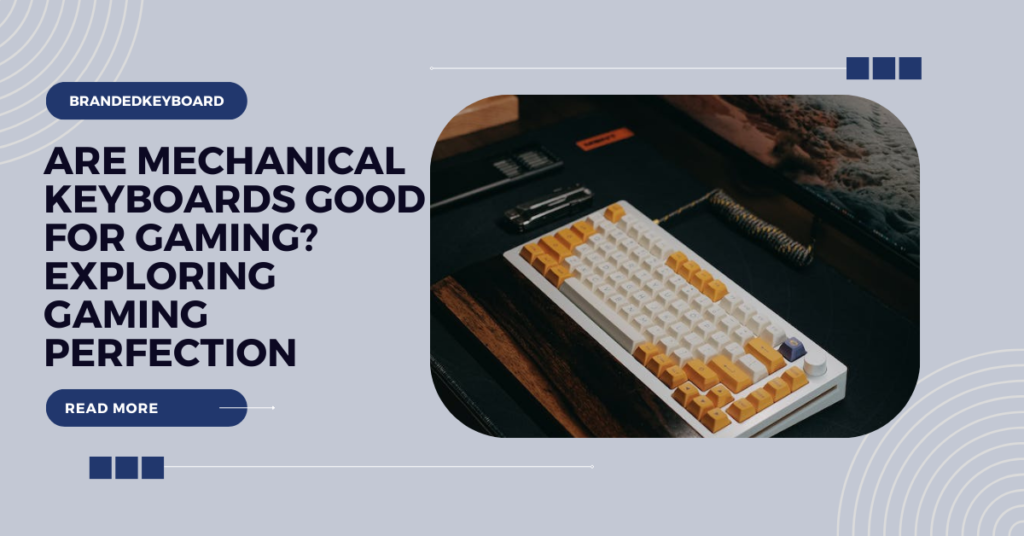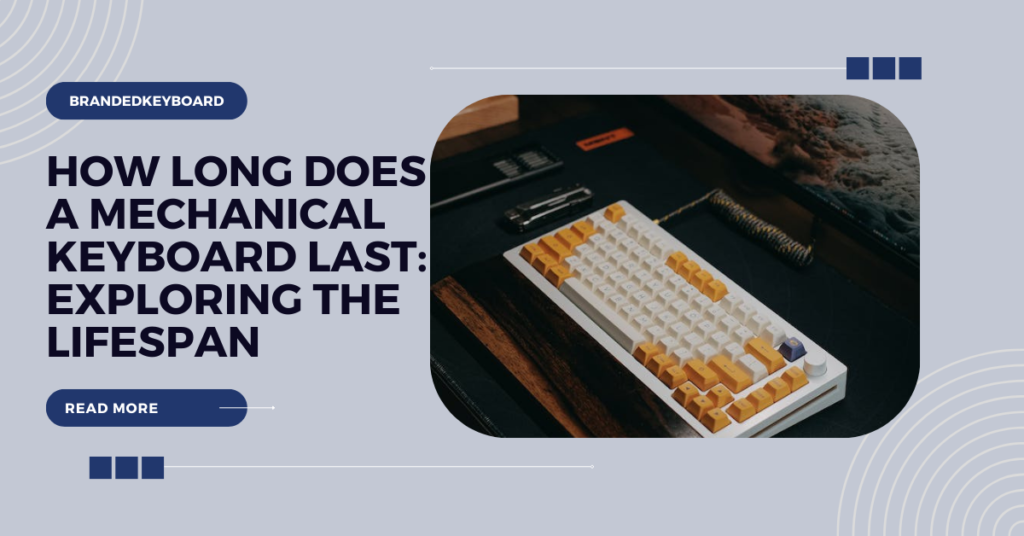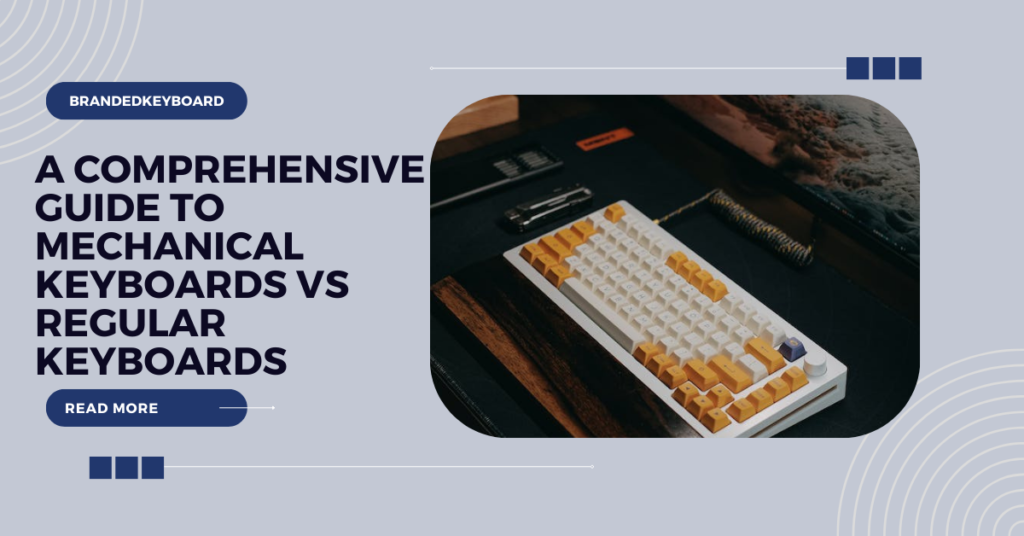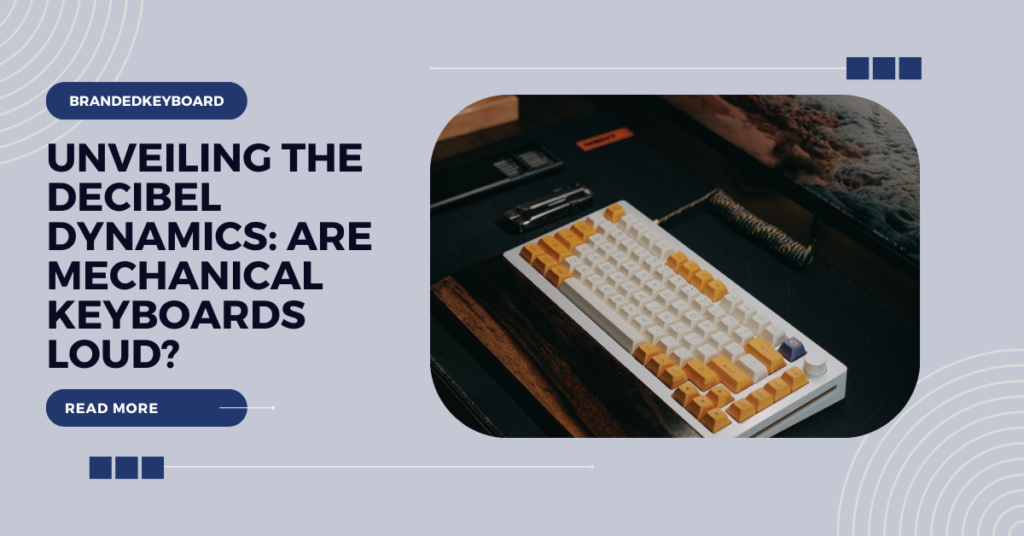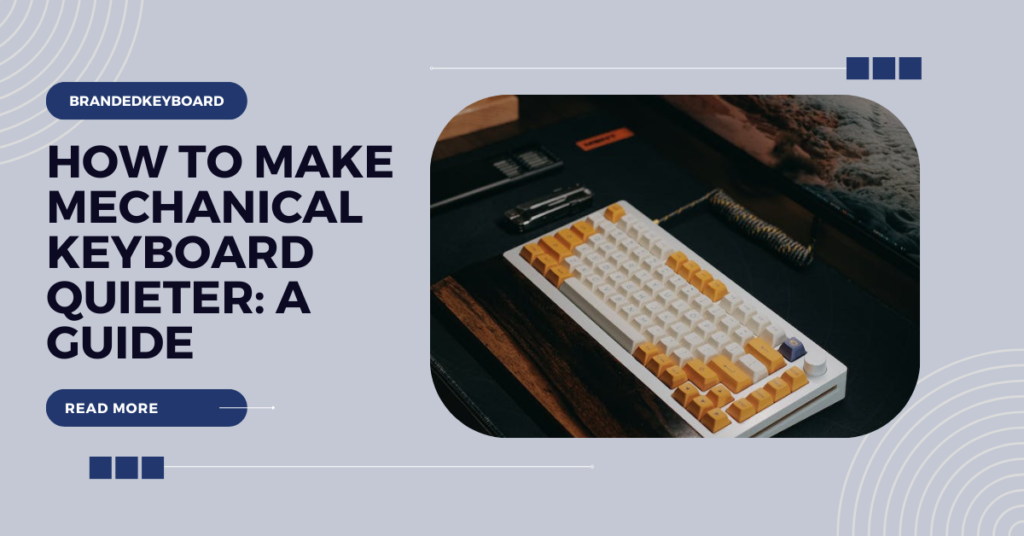In the powerful universe of gaming, where parted second responses and accuracy control can be the contrast among triumph and rout, the decision of info gadgets holds fundamental significance. Keyboards, once relegated to a utilitarian role, have evolved into sophisticated tools tailored for the unique demands of gamers. Among these, mechanical keyboards have surged in popularity, becoming synonymous with serious gaming setups. This article delves into the question: Are Mechanical Keyboards Good for Gaming?
Background on the Evolution of Keyboards in Gaming
To appreciate the significance of mechanical keyboards, it’s crucial to understand their historical context. Traditionally, gamers relied on membrane keyboards, which, while functional, lacked the tactile responsiveness and durability required for intense gaming sessions. The advent of mechanical keyboards marked a transformative moment, introducing a level of precision and customization that revolutionized the gaming experience.
Significance of Gaming Keyboards
Gaming keyboards are not merely peripherals; they are integral components influencing gameplay, responsiveness, and overall immersion. The tactile feedback, customizable features, and specialized switches of mechanical keyboards contribute to a holistic gaming environment. As such, the shift towards mechanical keyboards aligns with a broader trend within the gaming community, emphasizing the pursuit of optimal performance and user experience.
Purpose of the Article
This article seeks to dissect the allure of mechanical keyboards for gamers by undertaking a comprehensive analysis. Instead of a one-size-fits-all methodology, we mean to investigate the nuanced benefits and expected downsides of mechanical consoles. This guide intends to empower gamers with the knowledge needed to make informed decisions, considering individual preferences, gaming styles, and budget constraints. Join us on this journey through the intricate world of mechanical keyboards, where every key press is a step towards victory.
Understanding Mechanical Keyboards
In-Depth Explanation of Mechanical Switches:
At the heart of mechanical keyboards lie the switches, the mechanisms responsible for registering keypresses. These switches come in various types, such as Cherry MX, Razer, and Romer-G, each offering unique characteristics. Unlike their membrane counterparts, mechanical switches provide a tactile feel, audible click, and customizable actuation points. This versatility allows gamers to select switches that align precisely with their preferences, offering a level of responsiveness and feedback unparalleled on traditional keyboards.
Comparison with Membrane Keyboards:
To comprehend the superiority of mechanical keyboards, a comparison with membrane keyboards is essential. Membrane keyboards rely on a rubber dome beneath the keys, requiring the entire key to be pressed for actuation. In contrast, mechanical switches register keypresses with partial keypresses, enabling quicker response times. The tactile feedback in mechanical switches provides a sensory advantage, giving gamers a tangible connection to their actions and enhancing overall gaming precision.
Understanding the intricate mechanics of mechanical switches reveals the technological prowess that underpins these gaming peripherals. As we move forward, this knowledge serves as the foundation for evaluating the advantages and drawbacks of mechanical keyboards for gaming enthusiasts.
Advantages of Mechanical Keyboards for Gaming
Responsiveness and Actuation Force:
One of the standout features of mechanical keyboards is their unparalleled responsiveness. The reduced input latency and faster response times can be attributed to the distinct actuation mechanism of mechanical switches. Gamers can customize actuation points, determining how far a key needs to be pressed before a command is registered. This degree of accuracy demonstrates significance in serious gaming situations where split second choices can represent the deciding moment of a match.
Durability and Longevity:
The durability of mechanical keyboards stems from the robust nature of their switches. Mechanical switches are engineered to withstand millions of keypresses, making them ideal for gaming marathons and prolonged use. This longevity not only ensures a prolonged lifespan for the keyboard but also maintains consistent performance over time. For gamers invested in their craft, the durability of mechanical keyboards becomes a compelling factor in justifying the initial investment.
Tactile Feedback and Typing Experience:
Beyond gaming, the tactile feedback of mechanical keyboards translates into a superior typing experience. The distinct ‘click’ or ‘clack’ with each keypress not only enhances the overall enjoyment of typing but also provides tangible feedback during gaming. This tactile response allows gamers to develop a nuanced understanding of their actions, promoting muscle memory and contributing to precise control in fast-paced gaming situations.
As we explore these advantages, it becomes evident that the distinctive features of mechanical keyboards cater to the specific needs of gamers. The combination of responsiveness, durability, and tactile feedback positions mechanical keyboards as a formidable choice for those seeking optimal gaming performance.
Customization Options
Keycap Customization:
The allure of mechanical keyboards extends beyond their internal mechanics to the very surface—the keycaps. Enthusiasts revel in the ability to personalize their keyboards through a myriad of keycap options. These incorporate various materials, profiles, and surfaces, permitting gamers to tweak the style and feel of their console. Custom keycaps not only add a visual flair but also contribute to the overall tactile experience, enabling users to tailor their setup to suit individual preferences.
RGB Lighting and Effects:
A visual feast accompanies mechanical keyboards through the advent of RGB lighting. The customizable backlighting options, often with millions of color combinations, transform the keyboard into a dynamic canvas. Beyond mere aesthetics, RGB lighting serves a functional purpose, aiding in key visibility during low-light gaming sessions. The ability to synchronize lighting effects with in-game events or personal preferences enhances the immersive quality of gaming setups.
Programmable Macros for Gaming:
For gamers seeking a competitive edge, the programmable macro functionality of mechanical keyboards proves invaluable. Macros allow users to record and execute complex sequences of keypresses with a single command. In the gaming realm, this can translate to executing intricate maneuvers or unleashing a series of actions with minimal effort. The flexibility to program macros caters to diverse gaming genres, from strategy games requiring intricate commands to FPS titles demanding swift and precise actions.
The customization options available with mechanical keyboards transcend the functional, offering a canvas for users to express their individuality. Whether through the tactile sensation of custom keycaps, the visual spectacle of RGB lighting, or the strategic advantage of programmable macros, mechanical keyboards provide a level of personalization that extends the gaming experience beyond the screen.
Potential Drawbacks
Cost Considerations:
While the advantages of mechanical keyboards are compelling, one cannot overlook the potential drawback of cost. Mechanical keyboards generally come with a higher price tag compared to membrane alternatives. The initial investment might be a deterrent for budget-conscious gamers, necessitating a thoughtful consideration of long-term value. Notwithstanding, it’s pivotal to see this expense as an interest in solidity, execution, and the general gaming experience.
Noise:
The audible ‘click’ or ‘clack’ of mechanical keyboards, while satisfying for some users, can be a point of contention. The noise generated by mechanical switches, especially in quieter environments, might disrupt concentration or be bothersome to others. This becomes a crucial factor for gamers who share spaces or prefer a more discreet gaming setup. Various noise reduction solutions, such as dampening rings or switch types designed for quieter operation, are available to address this concern.
As with any technological choice, potential drawbacks should be weighed against the benefits. While the cost may be a hurdle initially, the enhanced performance and durability of mechanical keyboards often justify the expense. Similarly, noise considerations can be mitigated with careful switch selection or the addition of noise dampening accessories, making it important for users to assess their priorities and preferences when making a decision.
Personal Preferences and Gaming Styles
Exploration of Different Gaming Preferences:
The realm of gaming is vast, encompassing various genres and playstyles. Understanding that different gamers have distinct preferences is paramount when considering keyboards. Competitive gamers might prioritize quick, precise keypresses, favoring mechanical keyboards for their responsiveness. In contrast, casual gamers may value comfort and a quieter gaming environment, making alternatives like membrane keyboards or hybrids more appealing. Recognizing these diverse needs emphasizes the importance of personalization in the quest for the ideal gaming keyboard.
Factors Influencing Individual Choices:
Several factors contribute to individual preferences when it comes to gaming keyboards. Typing habits play a role, as users accustomed to the tactile feedback of mechanical switches may find it difficult to transition to other types. Additionally, the overall gaming setup and desk ergonomics can influence the decision-making process. The keyboard should seamlessly integrate into the gaming environment, ensuring comfort and a natural feel during extended gaming sessions.
Understanding the nuanced idea of individual inclinations reveals insight into the way that there is no one-size-fits-all arrangement in the realm of gaming consoles. The choice between mechanical, membrane, or hybrid options hinges on the unique combination of gaming habits, preferences, and individual comfort levels. As we push ahead, obviously adjusting the console to individual inclinations is vital to upgrading the general gaming experience.
Alternative Gaming Keyboards
Membrane Keyboards:
While mechanical keyboards have carved a niche for themselves in the gaming arena, membrane keyboards remain a viable alternative. Membrane keyboards utilize a different technology, relying on a rubber dome beneath the keys for actuation. Although they lack the tactile feedback of mechanical switches, membrane keyboards are generally quieter and more budget-friendly. They are well-suited for gamers who prioritize a softer touch and a less pronounced keystroke.
Hybrid Keyboards:
As technology advances, the lines between mechanical and membrane keyboards blur, giving rise to hybrid options. These keyboards aim to combine the best of both worlds, incorporating mechanical switches for certain keys while utilizing membrane switches for others. Hybrid keyboards attempt to strike a balance, offering a compromise between the tactile feel of mechanical switches and the softer touch of membrane keys. This versatility caters to users seeking a middle ground in terms of responsiveness and noise levels.
Scissor Switch Keyboards:
Another alternative in the gaming keyboard landscape is the scissor switch mechanism, commonly found in laptop keyboards. Scissor switches provide a relatively low-profile design with short key travel, making them suitable for users who prefer a compact and portable gaming setup. While not as prevalent in the gaming market as mechanical keyboards, scissor switch keyboards offer a unique typing experience and may appeal to gamers who prioritize portability without sacrificing too much on key feel.
Exploring these alternative options expands the horizons for gamers, offering diverse choices that align with specific preferences. As the gaming console market keeps on developing, clients have the advantage of choosing a console that takes special care of their gaming needs as well as supplements their way of life and individual taste.
Expert Opinions and Reviews
Gathering Insights from Professional Gamers:
To provide a holistic view, it’s imperative to tap into the experiences and opinions of those who push gaming peripherals to their limits—professional gamers. Interviews with esports players reveal valuable insights into the practical implications of using mechanical keyboards in highly competitive settings. Their preferences, often shaped by the demand for precision and reliability, offer a real-world perspective on the benefits of mechanical keyboards for gaming.
Aggregated User Reviews and Experiences:
User reviews serve as a crucial component of understanding the broader gaming community’s sentiment towards mechanical keyboards. Aggregating reviews from various platforms allows us to identify common trends, concerns, and standout features. This collective user experience provides a comprehensive picture, helping prospective buyers gauge the long-term satisfaction and performance of specific mechanical keyboards.
Incorporating the perspectives of both experts and everyday users enriches the discussion on mechanical keyboards. While professional gamers offer insights into the extreme demands of competitive play, aggregated user reviews provide a broader sense of how these keyboards perform under various gaming conditions. As we navigate through these expert opinions, it becomes evident that mechanical keyboards have not only gained favor in the professional arena but have also garnered widespread acclaim among the gaming community at large.
Conclusion
In the ever-evolving landscape of gaming peripherals, the analysis of mechanical keyboards reveals a multifaceted story. The advantages, from heightened responsiveness to customizable aesthetics, position mechanical keyboards as powerful tools for gamers seeking an elevated experience. Durability, tactile feedback, and programmable features add layers of complexity, enriching the gaming journey.
Amidst the technical intricacies, it’s crucial to underscore the subjective nature of keyboard preferences. The tactile sensations, customization options, and even the audible clicks are deeply personal choices. Recognizing the importance of individual comfort and playstyle allows gamers to align their keyboard choice with their unique needs, promoting an immersive and enjoyable gaming experience.
As we draw inductions from this examination, clearly there’s no one-size-fits-all answer for whether mechanical control centers are perfect for gaming. Instead, the decision rests on a combination of personal preferences, gaming styles, and budget considerations. For those seeking the pinnacle of performance and customization, mechanical keyboards often prove to be a worthy investment. However, alternative options like membrane keyboards or hybrids remain valid choices for users with different priorities.
In the unique domain of gaming, the console isn’t simply a device but an expansion of the gamer’s will. The journey through mechanical keyboards unveils a world of possibilities, where each keystroke is a deliberate move towards victory. As we navigate the vast array of options, let personal preference be the guiding light, ensuring that every gaming session is not just a challenge but an exhilarating adventure.
Read More: How to Make A Wireless Apple Keyboard Discoverable: Mastering the Process
FAQs
Yes, many gamers prefer using mechanical keyboards due to their tactile feedback, durability, and enhanced responsiveness, providing a satisfying gaming experience.
The best type of keyboard for gaming often depends on personal preference. However, mechanical keyboards are popular among gamers for their tactile switches and robust build quality.
Mechanical keyboards are often considered better for FPS games because of their precise and distinct keypresses, allowing players to execute commands with accuracy and speed.
The choice between a mechanical keyboard and a gaming keyboard depends on individual preferences. Mechanical keyboards are a type of gaming keyboard, known for their mechanical switches, while gaming keyboards encompass various types, including membrane and hybrid options. The decision ultimately depends on the user’s typing or gaming preferences.
